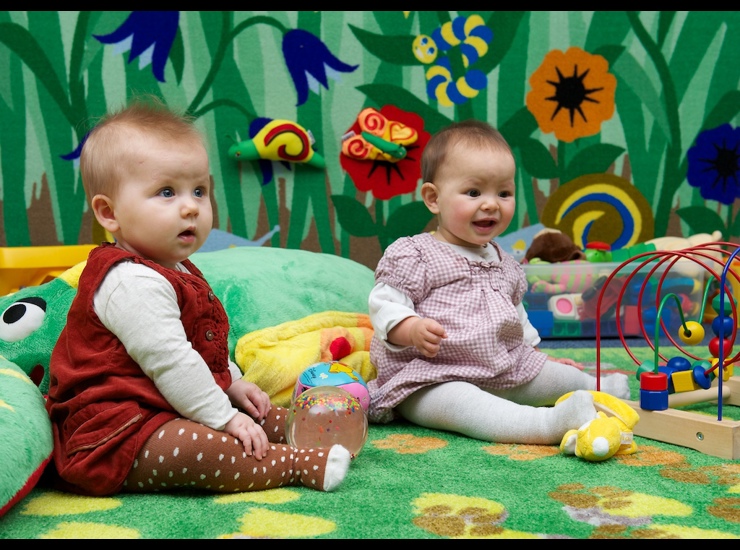
A new review of the evidence on early language development, commissioned by the EEF in partnership with Public Health England and published today, has examined the most effective ways to support young children with delays in their early language development.
A team of researchers, including LuCiD's Professor Anna Theakston, looked at the existing evidence to find out which interventions have the greatest potential for boosting toddlers’ language skills and reducing inequalities in outcomes. They also summarised the existing literature on language development. According to the report:
- children’s gestures, such as pointing, are key to their early language development;
toddlers need to be using between 50 and 100 words before they start putting words together, a skill that can be a better predictor of later abilities than the number of words used; - at some point between the ages of two and three, children typically start to produce longer, more complex sentences.
- In addition to high-quality early years provision, the researchers identify interactions with parents as key.
However, the most recent figures suggest that between 7-14% of children struggle with language before school starts. This can hold back their reading and writing ability later in school.
The researchers identified a series of intervention studies which have had positive results on developing language skills. They found one of the best ways to improve early language development for this group is through training for teachers in early years settings so that they can deliver cost-effective and evidence based interventions to those children who have fallen behind.
In addition to high-quality early years provision, the researchers identify interactions with parents as key. They highlight at need to promote positive interaction between parents and their children before they get to nursery at 2-3 years.
The report also stresses the need for better monitoring of children’s progress at different stages of their development, to catch those children falling behind and to identify those who need targeted, specialist support.
Today’s evidence review will inform guidance on early years literacy teaching, due to be published later this year.
Read the full report: Early Language Development: Needs, provision, and intervention for preschool children from socioeconomically disadvantage backgrounds
Article adapted from a press release written by the Education Endowment Fund.
